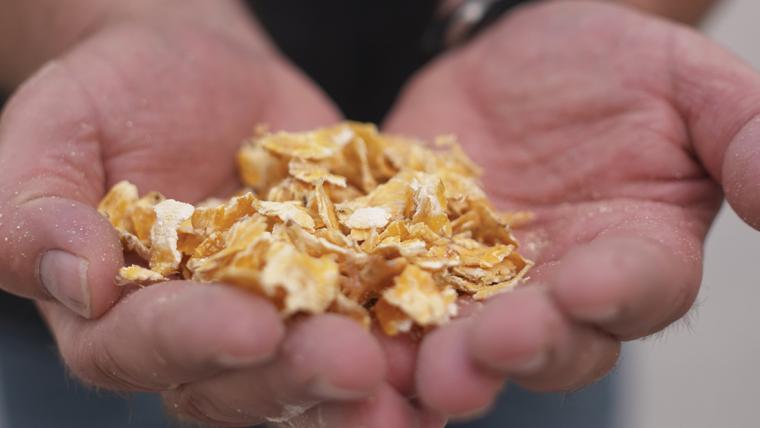
Food production requires a perfect storm of factors. The land must be suitable for farming or raising animals. The location must be proximal to state-of-the-art food production facilities, including cold storage. There must be ample labor available -- this is not work that can be done over Zoom call and the cloud -- and the region must be close to transportation assets. Increasingly, technology as well as site selection play outsized roles in determining perfect food production locations.
Following are some stories about how regions are creating food and attracting agriculture-related economic development.
Conecuh County, Alabama

Conecuh County is centrally located between Mobile and Montgomery Alabama, with multiple exits on I-65 that offer easy and convenient access to resources and markets. The region is crisscrossed by U.S. Highway 84 and U.S. Highway 31 and Alabama Highways 41 and 83. Additionally, it has CSX railroad access.
The largest food company in the county is Conecuh Sausage, a maker of hickory smoked pork sausage. In addition, the region is ideal for growing cotton, peanuts, corn and soy.
Conecuh County is well situated for the beverage industry as the water available in North Conecuh is pure and plentiful.
In recent years, the surrounding counties have had three slaughterhouse development projects located in Covington, Escambia and Monroe counties.
Conecuh County boasts one of the few certified Advantage Sites on I-65 at Exit 93. The Fairview Commons Site has 811 acres available for immediate development.
As a certified ACT Work Ready Community, Conecuh County has a robust workforce development initiative in place that links education and workforce development, aligns to economic development and matches people to jobs. Conecuh County qualifies as a targeted rural county for enhanced Alabama incentive programs and is committed to assisting efforts of new and expanding businesses.
In short, Conecuh County offers modern infrastructure, market access, modest business costs and a business-friendly community.
Evansville, Indiana
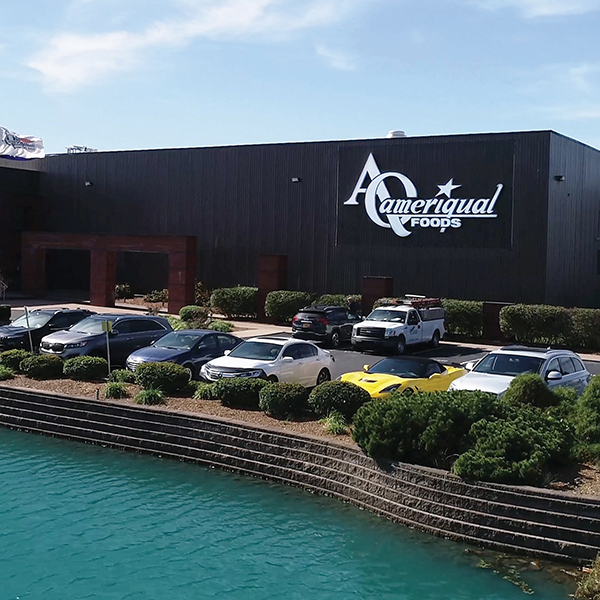
The Evansville region is ideal for food production for a variety of reasons. A predominantly agrarian area, Evansville has significant access to water, farmland and other natural resources. Currently, large food interests include AmeriQual Foods, Prime Foods, PGP International, Kerry Ingredients, Azteca Milling LP, Nunn Milling, Archer Daniles Midland, Reckitt Benckiser, Tyson Foods, Lewis Bakeries, CGB Enterprises, Donut Bank Bakery, Posey County Farm Bureau and Co-Op, and Midwestern Pet Food.
Evansville’s location in the middle of the United States in relation to total population makes it significant for distribution, as well. Specifically, the Evansville Region is situated on the Ohio River, which serves as a significant inland waterway and logistics channel. Evansville can easily import and export key materials, crops and other resources that serve as components in the supply chain of many products. Finally, the Evansville Region is connected to two significant interstate systems: I-64 running east and west and I-69 running north and south. Being at the crossroad of this logistical corridor allows Evansville to play a pivotal role in the supply chain for many products and industry sectors.
Most significantly, the Evansville Region has just completed a study of the completion of the I-69 bridge and corridor connection. This study will set the course for new and future site development, attraction, and insights into intermodal logistics to strengthen and grow the economic opportunity of the region.
“Between food production, processing and agriculture, the Evansville Region recognizes an economic impact of more than $1 billion annually,” said Tyler Stock, Executive Director of Talent EVV-Evansville Regional Economic Partnership. “The state and region have historically outperformed in these industries and have a long history of agriculture and food production, so our ability to sustain, grow, and evolve these sectors is a significant priority.”
Iowa
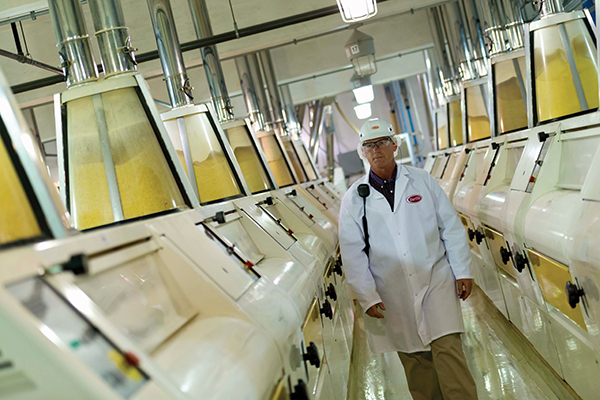
Iowa is number one in the U.S. in corn production, hog production, egg production, red meat production and farm cash receipts, and second in soybeans. Major food producers located in the state include Corteva, Ajinomoto, Cargill, Barilla, Ferrero, Hormel, KraftHeinz, Nestle, Quaker and Daisy Brand. (Dallas-based Daisy Brand announced in April 2024 it would be locating a new $700 million facility in Boone and creating 255 jobs.)
Iowa offers unprecedented proximity to producers of crops, livestock, chemicals and other important products, access to three major interstate highways and access to barge transportation on the Mississippi River
There are significant incentives, as well. The state offers the Major Economic Growth Attraction (MEGA) program, which provides tax incentives for businesses making capital investments and creating jobs in Iowa. Qualified businesses may receive a tax credit for withholding tax, a refundable investment tax credit, and refunds of services tax and sales and use taxes paid for building and construction materials.
The High Quality Jobs (HQJ) program provides qualifying businesses assistance to offset some of the costs incurred to locate, expand or modernize an Iowa facility. This flexible program includes loans, forgivable loans, tax credits, exemptions and/or refunds. In addition, a one-time corporate income tax credit is available to participants in the New Jobs Training Program. Iowa offers the credit as an incentive for businesses that provide additional training to employees and expand their workforce.
“Iowa’s nutrient-rich land and innovative agricultural practices make it a powerhouse of food production,” said Debi Durham, Director of the Iowa Economic Development Authority and Iowa Finance Authority. “These attributes, combined with our competitive tax structure, low cost of doing business, excellent transportation infrastructure and skilled, productive workforce, attract major food brands to set up operations in the state and foster an environment where ag-tech entrepreneurs can flourish.”
Laredo, Texas
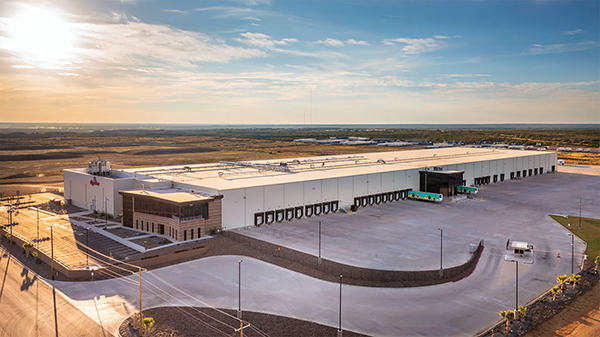
The Laredo region has seen tremendous growth in produce and cold storage operations over the last decade. Companies choosing Laredo for their storage and processing centers include Mission Produce, United States Cold Storage, Mastronardi, Nature Fresh Farms and more.
Laredo has an optimal location for supporting logistics and processing for food and ag trade with Mexico. Located at the southern point of Interstate Highway 35, the region offers easy connectivity to East-West routes for national supply chain coverage and connects to the main Mexico highway, making it ideal for imports from Mexico’s agricultural heartland and exports to Mexican consumers. In addition, the Port of Laredo boasts the only crossing point with Mexico with refrigerated inspection facilities, ensuring the cold chain for imports and exports is preserved with an efficient international bridge system. Additionally, Laredo has a young talented workforce with a pro-business climate with municipal government and private-sector stakeholders.
“Avocados have become a staple for U.S. consumers and Laredo has been the beneficiary of a lot of that cold chain growth,” said Gene Lindgren, President and CEO of the Laredo Economic Development Corporation. “About 95,000 truckloads of avocados come into the country every year, with about 97 percent crossing the southern border in Texas. The market share for the Port of Entry of Laredo accounts for 55 percent of that volume.”
Northern Colorado
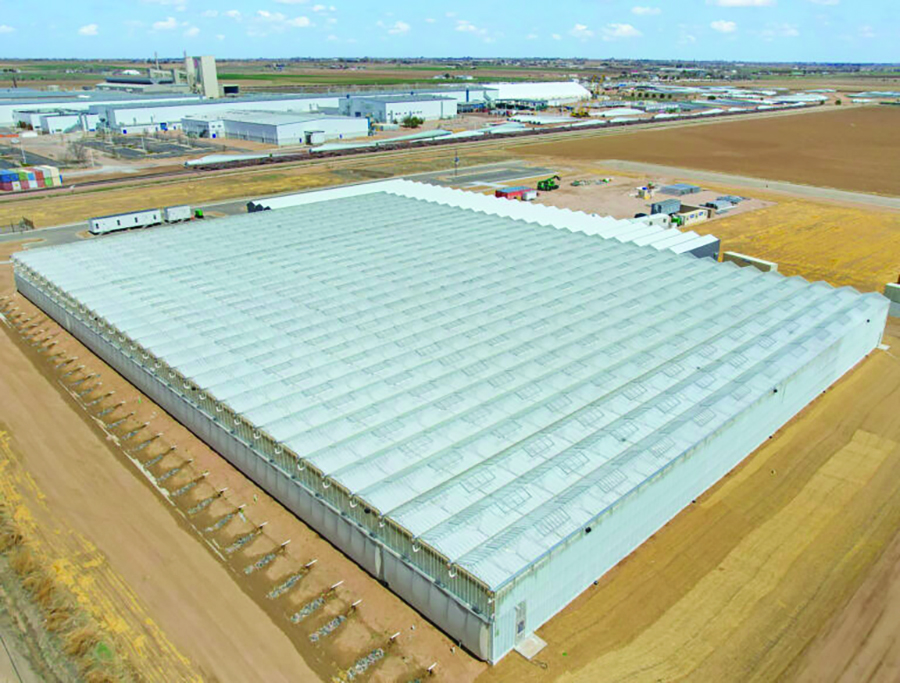
In Northern Colorado, more than 4,000 farms provide the region with a backbone to support significant livestock and dairy production. Weld County is one of the nation’s largest agricultural production counties outside of California. The region features a number of large industry players, including JBS (beef), Pilgrim’s Pride (poultry), Leprino (mozzerralla cheese), Colorado Premium (specialty meats), JM Smuckers (Uncrustables), Noosa Yoghurt, Aurora Organics (dairy) and Gotham Greens (vertical farming).
Northern Colorado is part of the economic driver that is Denver, and the Front Range of Colorado sits between I-70 to the south and I-80 to the north. The area also features two class one rail operations. Denver is just 340 miles from the geographical center of the continental U.S. — closer to the center of the nation than any other city its size.
Growing players in the region include Colorado Premium, which expanded to a third facility and added 275 jobs in 2024, Smuckers, which has been operational since 2019 and expanded in 2022 by 240,000 square feet and 275 jobs, and Gotham Greens, which expanded in 2023.
There are business incentives available from state, county and local governments depending on the type of project. Along with traditional incentive programs, companies are able to partner with Colorado State University, which recently launched the CSU Spur Campus as the educational anchor of the National Western Center. CSU Spur is a three-building campus that pursues significant agricultural research partnerships focused on food, water and health.
“We continue to see activity in this sector as large companies look to service the Midwest and Western U.S. with their products,” said Richard C. Werner, President and CEO of Upstate Colorado Economic Development. “In addition to the larger projects, we are also thrilled to see significant growth in organic food production as well as ag-tech companies bringing new innovation to the industry as they take advantage of the talent and research capabilities here in Northern Colorado.”
Shelby County, Indiana
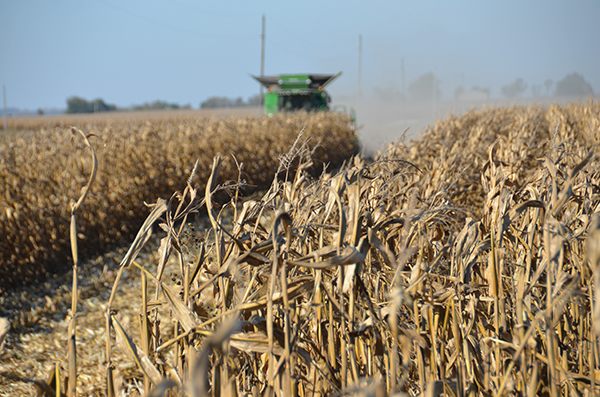
Shelby County has a strong agricultural/agri-business community. In Shelby County, more than 89 percent of farms in the county are individual or family-owned, covering an average of 389 acres of farmland. The top crops produced in Shelby County include soybeans (over 96,000 acres) and corn (over 93,000 acres). Large players in the county include Bunge (which recently pursued a $550 million expansion), Fischer Food Grade Seeds, Klosterman’s Bakery, Park 100 Foods, POET Bioprocessing and Bass Farms. In addition, a proposed bio-digester project is expected to continue moving Indiana’s Agri-Bioscience sector forward, helping to solidify Shelby County as a leader in the agricultural community.
In Shelbyville, Interstate 74 is accessible via Exits 101, 109, 113 and 116, and Interstate 65 runs through the southwestern part of Shelby County. Other infrastructure accessible in Shelbyville and Shelby County includes State Roads 9, 44, 52 and 252.
Local incentives available to agri-business companies include 10-year tax abatement for capital investment for real and personal property, as well as unique local education and training programs. Other incentive options are assessed based on specific project needs.
“Just a little over 230,000 acres in Shelby County are used for agriculture, and nearly 200,000 acres are used specifically for row crops, so it’s important that we raise the awareness of agriculture and the impact our producers and ag leaders have here in our community,” said Scott Gabbard, County Extension Director and Ag Educator with Purdue Extension — Shelby County.
Upstate South Carolina
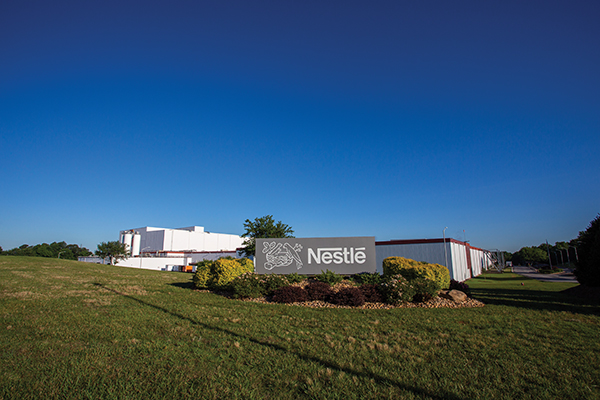
Upstate South Carolina is home to 300 food and beverage companies, with 141 organizations operating in food and beverage manufacturing, 121 in distribution and 38 in packaging.
One of the longest-standing food and beverage companies in Upstate South Carolina is the Nestlé facility in Gaffney, which produces Stouffer’s and Lean Cuisine prepared meals. The company has been operating in the region for more than three decades and is still growing, having recently announced an expansion and 160 new jobs to increase its production capacity.
In addition, Duke’s Mayonnaise, a Southern staple, was created and perfected in Greenville, South Carolina in 1917.
Recently, new investments have been made in the region. Nissin Foods, a leader in producing ramen products and the parent company of Cup Noodles, Top Ramen and Cup Noodles Stir Fry products, announced a $228 million investment and 300 new jobs to be created in Greenville County. Keurig Dr Pepper, which has a coffee roasting facility in Spartanburg County, announced more than $480 million in capital investment and the creation of more than 300 new jobs since its initial announcement in 2019. Milo’s Tea, a beverage company, announced a $130 million investment and 103 new jobs to brew and bottle ready-to-drink beverages within Spartanburg County. E.A. Sween, a supplier of ready-to-eat sandwiches, announced a $38 million investment and 300 new jobs. Finally, Tomahawk Processing, a meat processor, invested $5 million and created 26 jobs in Laurens County to provide beef processing and packing services.
Upstate South Carolina is an ideal market location for food production because companies in the region can serve 102 million consumers within a one-day drive, supported by a robust transportation infrastructure that includes interstates, seaports and inland ports. South Carolina has the fourth-largest state highway agency-owned highway system, with more than 41,000 miles of interstate. The Port of Charleston is the deepest port on the East Coast.
The region’s abundant, high-quality water resources, combined with proximity to the Southeast’s agricultural producers, give companies access to the ingredients they need and the customers they serve.
Beyond location and natural resources, food and beverage industry companies find that South Carolina is a state that knows manufacturing, with workforce partners and programs created to support industry needs. These programs include Clemson University, one of few universities within the U.S. to offer a Packaging Science program that blends biology, chemistry and physics. The program has had 698 completions from undergraduate to PhD degrees from 2018 to 2023.
In addition, the SC Technical College System and its affiliate readySC provide customized training and hiring support to meet companies’ needs. For example, E.A. Sween has used laboratory flex space at Piedmont Technical College to provide training on its own machinery and equipment while the company’s facility was under construction, and readySC has hosted job fairs to connect companies with candidates, and provides customized, post-hire training.
The SC Department of Agriculture offers special grants to support agriculture-related projects, and the SC Department of Commerce has robust incentives available to new or expanding companies. In addition, counties have the ability to offer additional incentives.
“We have one-day access to 102 million consumers, a history of manufacturing expertise and supportive partners who understand what industry needs, all within a collaborative business environment,” said John Lummus, President and CEO of the Upstate SC Alliance. “It has been exciting to welcome new companies to the Upstate, and to see legacy names continue to prosper and expand within our region.” T&ID

